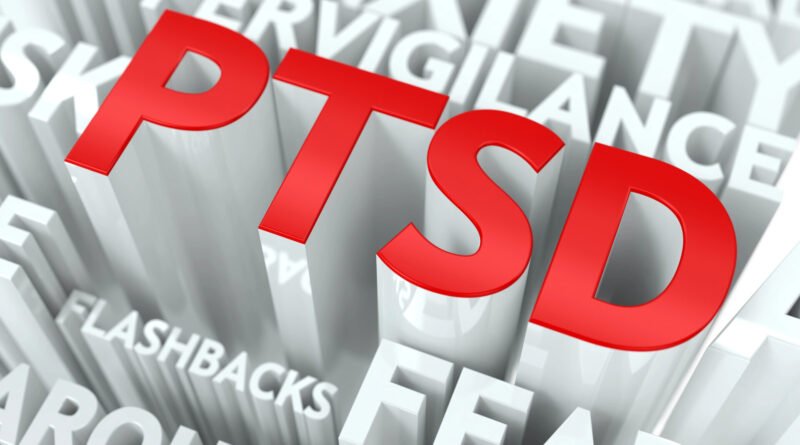Veterans and Mental Health
Overview
The mental health challenges faced by veterans often stem from a combination of factors unique to their military service experiences and post-deployment transition to civilian life.
Understanding these underlying causes is crucial for effectively addressing veterans’ mental health needs.
One of the primary contributors to mental health disorders among veterans is exposure to combat and traumatic events during military service. Combat-related trauma, such as witnessing death or injury, engaging in combat operations, and experiencing life-threatening situations, can have profound psychological effects on veterans.
The transition from military to civilian life can also pose significant challenges for veterans and contribute to mental health issues. After leaving the structured and tightly knit military environment, veterans may struggle to adjust to civilian life’s unfamiliarity and lack of structure.
Finally, isolation and a lack of social support are prevalent issues among veterans and can contribute to feelings of loneliness, depression, and anxiety. Veterans may experience social isolation due to physical distance from family and friends, difficulties reconnecting with civilian peers who may not understand their military experiences, or reluctance to seek help due to the stigma surrounding mental health issues in the military community.
Common Mental Disorders Among Veterans
Veterans often face unique challenges that can impact their mental health, stemming from their experiences during military service. In the following, we’ll discuss the most common mental disorders among veterans.
Post-Traumatic Stress Disorder (PTSD)
PTSD is a prevalent mental health condition among veterans, often triggered by exposure to traumatic events during military service. Symptoms of PTSD may include intrusive memories or flashbacks of traumatic events, nightmares, hypervigilance, avoidance of triggers associated with trauma, negative changes in mood or cognition, and heightened arousal.
Depression
Depression is another common mental health issue among veterans, characterized by persistent feelings of sadness, hopelessness, and loss of interest or pleasure in activities. Symptoms of depression may include changes in appetite or weight, sleep disturbances, fatigue, difficulty concentrating, feelings of worthlessness or guilt, and thoughts of death or suicide.
Anxiety Disorders
Anxiety disorders, such as generalized anxiety disorder (GAD), panic disorder, and social anxiety disorder, are prevalent among veterans and can be triggered by traumatic experiences during military service. Symptoms of anxiety disorders may include excessive worry or fear, restlessness, irritability, muscle tension, difficulty concentrating, and sleep disturbances.
Substance Abuse Disorders
Substance abuse disorders, including alcohol and drug abuse, are common among veterans and may develop as a way of coping with trauma, stress, or mental health issues. Veterans may turn to substances to self-medicate symptoms of PTSD, depression, or anxiety, leading to a cycle of dependence and addiction. Substance abuse can exacerbate existing mental health issues, impair judgment and decision-making, and increase the risk of accidents, injuries, and legal problems.
Traumatic Brain Injury (TBI)
Traumatic brain injury (TBI) is a significant concern among veterans, particularly those who have experienced blast-related injuries or combat-related trauma. TBIs can result in a range of physical, cognitive, and emotional symptoms, including headaches, dizziness, memory problems, difficulty concentrating, mood swings, and irritability. TBIs can have profound and long-lasting effects on a veteran’s functioning and quality of life, requiring comprehensive treatment and support.

Treatment and Prevention
Addressing mental health disorders among veterans requires a multifaceted approach
that encompasses both treatment and prevention strategies. By providing comprehensive care and support, we can help veterans effectively manage their mental health conditions and reduce the risk of further complications.
Treating Mental Disorders Amongst Vets
- Psychotherapy: Evidence-based psychotherapies, such as cognitive-behavioral therapy (CBT), prolonged exposure therapy (PE), and eye movement desensitization and reprocessing (EMDR), are effective in treating PTSD and trauma-related disorders among veterans. These therapies focus on processing traumatic memories, challenging negative thoughts, and developing coping skills to manage symptoms.
- Medication: Psychiatric medications, such as selective serotonin reuptake inhibitors (SSRIs), serotonin-norepinephrine reuptake inhibitors (SNRIs), and antipsychotics, may be prescribed to alleviate symptoms of depression, anxiety, and other mental health disorders in veterans. Healthcare providers should carefully monitor medication management to ensure safety and effectiveness.
- Substance Abuse Treatment: Veterans struggling with substance abuse disorders may benefit from comprehensive treatment programs that include detoxification, counseling, behavioral therapies, and support groups. Addressing co-occurring substance abuse disorders is essential for effectively managing mental health issues among veterans.
- Traumatic Brain Injury (TBI) Rehabilitation: Veterans with traumatic brain injuries may require specialized rehabilitation programs focused on improving cognitive functioning, physical mobility, and emotional adjustment. Multidisciplinary teams of healthcare professionals, including neurologists, neuropsychologists, and physical therapists, work together to develop individualized treatment plans for veterans with TBIs.
Preventing Mental Disorders Amongst Vets
- Early Intervention: Early identification and intervention are crucial for preventing the escalation of mental health issues among veterans. Screening tools, such as the PTSD Checklist (PCL) and the Patient Health Questionnaire (PHQ-9), can help identify veterans at risk for mental health disorders and facilitate timely access to appropriate care.
- Education and Awareness: Promoting mental health literacy and raising awareness about available resources and support services can help reduce stigma and encourage veterans to seek help when needed. Educational initiatives aimed at veterans, their families, and healthcare providers can help increase understanding of mental health disorders and available treatment options.
- Social Support Networks: Building and maintaining strong social support networks can serve as a protective factor against mental health issues among veterans. Peer support groups, community-based organizations, and veteran service organizations (VSOs) offer opportunities for veterans to connect with others who share similar experiences and provide mutual support and encouragement.
- Access to Comprehensive Care: Ensuring veterans have access to comprehensive mental health care, including evidence-based treatments, case management, and support services, is essential for preventing the recurrence of mental health issues and promoting recovery and resilience.
- Integrated care models that coordinate medical, mental health, and social services can address veterans’ complex needs and facilitate continuity of care.

Final Thoughts
Addressing mental health disorders among veterans requires a comprehensive approach that includes both treatment and prevention measures.
By providing timely and culturally competent care, promoting early intervention, raising awareness, and fostering social support networks, we can help veterans effectively manage their mental health conditions and improve their overall quality of life.
Investing in veteran mental health care is not only essential for supporting individual veterans but also for honoring their service and sacrifice to our nation.




